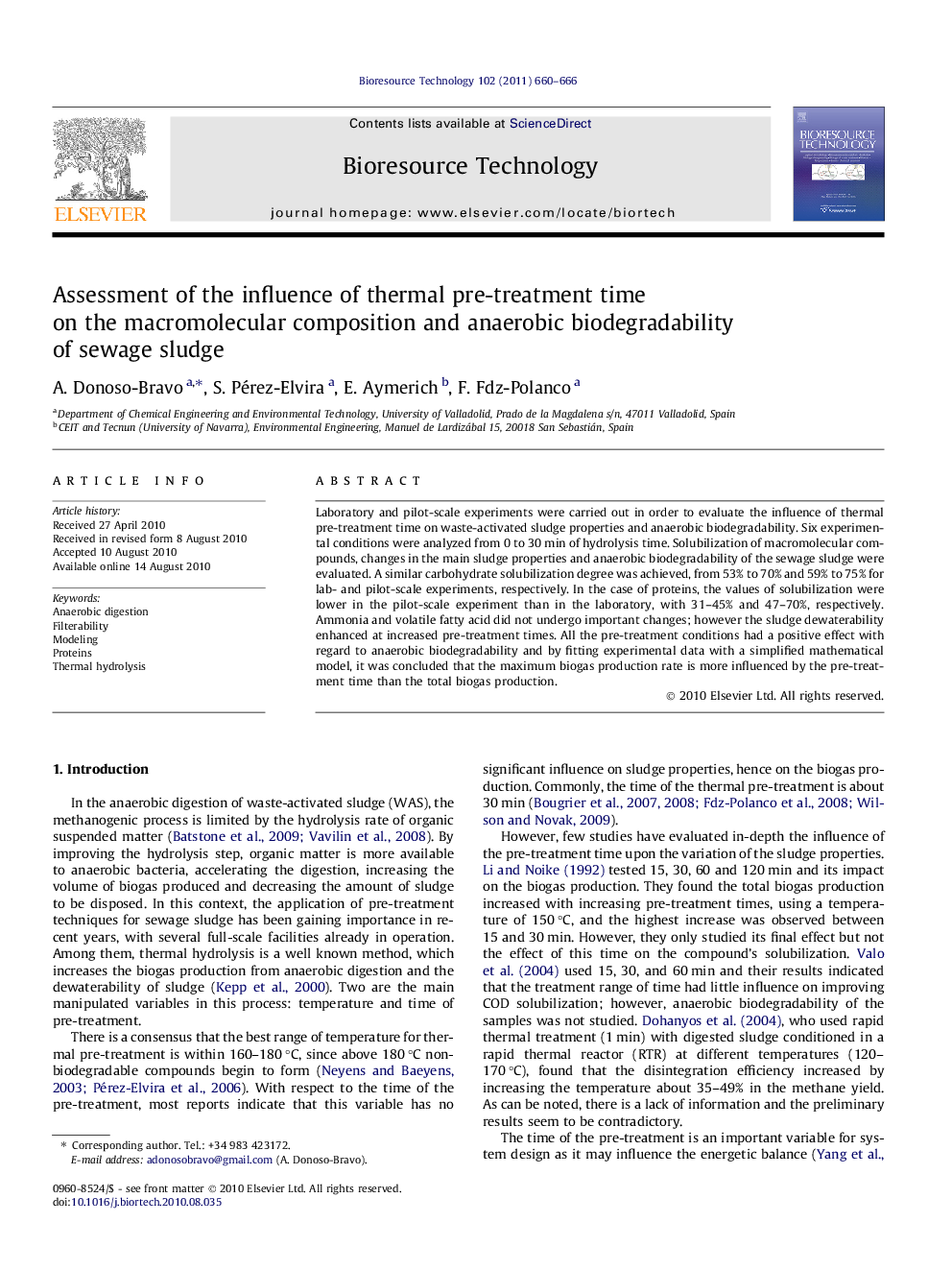| Article ID | Journal | Published Year | Pages | File Type |
|---|---|---|---|---|
| 682279 | Bioresource Technology | 2011 | 7 Pages |
Laboratory and pilot-scale experiments were carried out in order to evaluate the influence of thermal pre-treatment time on waste-activated sludge properties and anaerobic biodegradability. Six experimental conditions were analyzed from 0 to 30 min of hydrolysis time. Solubilization of macromolecular compounds, changes in the main sludge properties and anaerobic biodegradability of the sewage sludge were evaluated. A similar carbohydrate solubilization degree was achieved, from 53% to 70% and 59% to 75% for lab- and pilot-scale experiments, respectively. In the case of proteins, the values of solubilization were lower in the pilot-scale experiment than in the laboratory, with 31–45% and 47–70%, respectively. Ammonia and volatile fatty acid did not undergo important changes; however the sludge dewaterability enhanced at increased pre-treatment times. All the pre-treatment conditions had a positive effect with regard to anaerobic biodegradability and by fitting experimental data with a simplified mathematical model, it was concluded that the maximum biogas production rate is more influenced by the pre-treatment time than the total biogas production.
